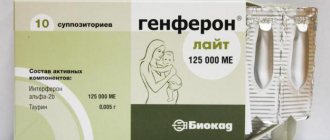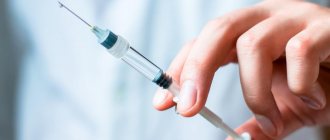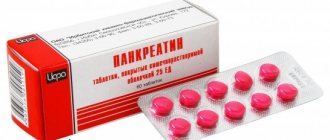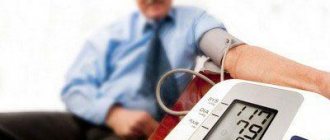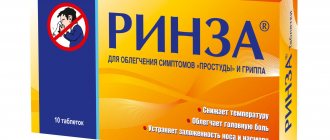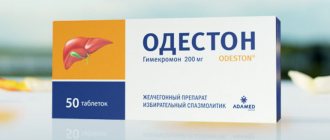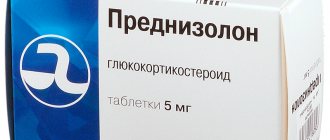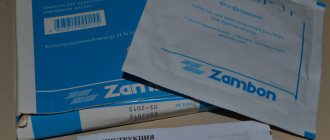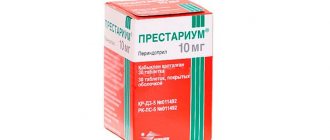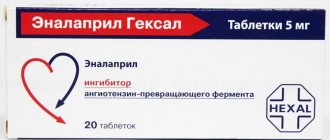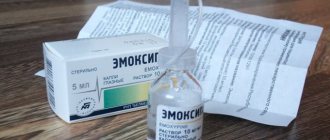A recent study suggests that aspirin may reduce the risk of heart attack, but may also cause severe bleeding.
Doctors and pharmacists are well aware that the preventive properties of cardiac aspirin are based on its ability to prevent blood clotting.
But the average pharmacy visitor who wants to protect the heart with advertised over-the-counter aspirin is not always aware of the other side of this coin - the risk of bleeding.
Not many people have heard about the effect of acetylsalicylic acid on the mucous membrane of the gastrointestinal tract.
A new study has found that aspirin, while reducing the risk of heart attack and stroke, may also increase the risk of potentially dangerous bleeding.
Researchers from Imperial College London and King's College in the UK analyzed data from 13 clinical trials involving more than 164,000 participants without cardiovascular disease aged 53 to 74 years.
The researchers wanted to find out whether aspirin prevents cardiovascular events in this age group, and also clarify the risk of bleeding requiring hospitalization.
The results, published in the Journal of the American Medical Association, point to two key points.
Firstly
If you've never had a heart attack (primary prevention), regular low-dose aspirin does prevent the risk of heart attack, stroke, and—most importantly—reduces mortality.
Secondly
, in secondary prevention (after previous cardiovascular events), taking aspirin has no effect on mortality and is associated with a high risk of bleeding. Simply put, it does not save life, but it adds problems.
“We end up with more people with severe bleeding that require hospitalization than people who are saved from heart attacks and strokes,” says Dr. Salman Arein, a cardiology professor at the University of Texas McGovern Medical School.
Dr. Arein explains that aspirin is a strong antiplatelet agent that interferes with the “gluing” of platelets.
Although platelets can be involved in the formation of a fatal blood clot in a cerebral artery, they prevent us from literally bleeding to death at the slightest cut in the skin or, especially, damage to internal organs. Therefore, long-term use of low-dose aspirin increases the risk of bleeding. This drug becomes even more dangerous if taken at the same time as popular anticoagulants. For example, with warfarin.
Aspirin prolongs the life of male mice, but does it prolong the life of female mice?
Aspirin prolongs life in model animals. And the most interesting thing is that aspirin extends the median lifespan by 8.9% in male mice that live long (heterogeneous mice). This is important because there are many products that can prolong the life of short-lived mice, but few that prolong the life of long-lived rodents. And for long-living mice, few means extend their maximum lifespan. Basically, this is an optimal calorie diet, or fasting.
But why did aspirin prolong life only in males? Does this mean that aspirin does not prolong the life of females? Does this mean that aspirin is good for men but not good for women? No, that doesn't mean it. If you carefully read the previous study (see picture on the left), it becomes clear that the rate of conversion of aspirin (ASA) into its less active antiplatelet metabolite salicylic acid (SA) in the body of female mice is much faster. Apparently aspirin does not have enough time to act on females. Why is this and how are things going for people?
Links to studies:
- www.ncbi.nlm.nih.gov/pmc/articles/PMC2695675
- www.ncbi.nlm.nih.gov/pmc/articles/PMC4637296
- www.ncbi.nlm.nih.gov/pubmed/18631321
- www.ncbi.nlm.nih.gov/pmc/articles/PMC2695675/figure/F1
The fact that in female mice the rate of conversion of aspirin (ASA) into its less active antiplatelet metabolite salicylic acid (SA) is much faster does not mean that it is also in women (in humans). Let's figure out what it takes for aspirin to work in people.
Randomized trials have shown that aspirin reduces morbidity and mortality in patients with cardiovascular disease. However, not all patients respond equally to aspirin therapy. Thus, some people, especially women, are intolerant to aspirin. However, recent studies have shown that true aspirin insensitivity is rare and that pseudo-insensitivity occurs due to the decrease in aspirin bioavailability that occurs after taking the enteric form. The fact is that aspirin is quickly absorbed in the stomach and small intestine, and its half-life in the bloodstream is about 20 minutes. Regular aspirin is absorbed in the stomach, where the low pH prevents it from deacetylating—the conversion of aspirin (ASA) to its less active antiplatelet metabolite salicylic acid (SA). But the various enteric forms release aspirin in the upper part of the small intestine, where the pH level is almost neutral, and, therefore, inactivation of aspirin occurs more quickly, and bioavailability is only 50%.
Regular aspirin from a pharmacy, called acetylsalicylic acid, will be effective.
Studies have also shown the advantages of the plain form of aspirin over its enteric forms in antiplatelet activity. In addition, a 3-fold faster peak concentration and a 5-fold higher maximum concentration of the active substance in the blood plasma were found after taking “plain” aspirin compared to the enteric form. The enteric form includes aspirin cardio. Also, aspirin in a stomach-safe coating is sold online on iHerb: Life Extension, Aspirin, low dose with a protective coating, 81 mg, 300 tablets . But there is no need to buy such aspirin - it will most likely be useless. Regular aspirin from a pharmacy, called acetylsalicylic acid, will be effective (as in the picture on the left)
Links to sources of information:
- https://cyberleninka.ru/article/n/rezistentnost-k-atsetilsalitsilovoy-kislote-sovremennoe-sostoyanie-problemy
- https://cyberleninka.ru/article/n/istinnaya-rezistentnost-i-psevdorezistentnost-k-aspirinu
But true insensitivity to aspirin also happens, although much less frequently. In these people, aspirin has little or no effect on platelets. And it will not reduce mortality and will not prolong life. This is more common in women. There is also a possibility that you cannot drink aspirin all the time, since 1/3 of the population develops insensitivity to aspirin over time (after 2 years of constant use). Aspirin intolerance also occurs in people with impaired kidney function. On average, aspirin insensitivity occurs in 5-60% of the population. But this 5-60% also includes people with false aspirin insensitivity due to intestinal forms of aspirin, and true aspirin insensitivity is very rare. Thus, in one study of 400 people, not a single case of true insensitivity to aspirin was found, although there were many cases of false insensitivity, which was eliminated after replacing the intestinal form of aspirin with the regular one.
Links to studies:
- www.ncbi.nlm.nih.gov/pubmed/18202034
- www.ncbi.nlm.nih.gov/pubmed/8446967
- www.ncbi.nlm.nih.gov/pubmed/16308181
- www.ncbi.nlm.nih.gov/pubmed/6221436
- www.ncbi.nlm.nih.gov/pmc/articles/PMC2213873/figure/fig3
- www.ncbi.nlm.nih.gov/pubmed/7974569
- www.ncbi.nlm.nih.gov/pmc/articles/PMC2234558
Rules for taking the drug
The method of using a particular drug depends on its characteristics. Thus, the medicine “Aspirin Cardio” should be taken before meals so that food does not interfere with the absorption of the active substance in the intestine. It is very important to swallow the tablet whole so as not to damage its protective coating. Only at the first signs of unstable angina, it is recommended to crush the tablet so that the drug is better absorbed and acts faster. You should drink plenty of water.
If a patient is prescribed Aspirin Cardio, the “Methods of Use” section of the instructions will tell you how to take it for various conditions. This section details the dosage of the drug for each indication.
The instructions included in the packaging of the drug “Aspirin Cardio” usually establish the daily dosage, which is taken at a time. For preventive purposes, to prevent the acute development of an infarction of the heart muscle, it is 100 mg or 300 mg, then alternate days are taken and days are not taken.
To prevent the development of repeated infarctions, various types of angina pectoris, strokes, thromboembolism, daily dosages of 100-300 mg are used after surgical operations on the veins. After a myocardial infarction for a month, the daily dosage is 200-300 mg.
For preventive purposes, the drug is prescribed for long-term use, and it is necessary to undergo periodic blood clotting tests to monitor the effect of acetylsalicylic acid. The doctor should discontinue the drug after studying the results of the blood test.
Aspirin prevents stroke in atrial fibrillation
To prevent cerebral strokes due to the formation of blood clots in patients with atrial fibrillation, aspirin is used (50 mg per day or even 100 mg once a week is sufficient) or other medications to thin the blood or reduce its clotting. But this can only be used as prescribed by a doctor, like any other medicine.
Links to studies:
- www.ncbi.nlm.nih.gov/pubmed/24474959
- www.ncbi.nlm.nih.gov/pubmed/26197188
- www.ncbi.nlm.nih.gov/pubmed/25988464
- www.ncbi.nlm.nih.gov/pubmed/27339487
Price Aspirin Cardio
The cost of the drug depends on the manufacturer and the number of tablets in the package - 20, 28 or 56 pieces. The product is available without a doctor's prescription. The table shows approximate prices:
| Place of purchase | Release form | Dosage | Quantity, pcs. | Price, rubles |
| Pharmacy zdravcity.ru | Pills | 300 | 20 | 78 |
| 100 | 28 | 123 | ||
| 100 | 56 | 229 | ||
| Pharmacy Wer.ru | Pills | 300 | 20 | 80 |
| 100 | 28 | 136 | ||
| 100 | 56 | 247 | ||
| apteka.ru | Pills | 300 | 20 | 83 |
| 100 | 28 | 134 | ||
| 100 | 56 | 234 | ||
| piluli.ru | Pills | 300 | 20 | 90 |
| 100 | 28 | 143 | ||
| 100 | 56 | 261 | ||
| smed.ru | Pills | 300 | 20 | 90 |
| 100 | 28 | 145 | ||
| 100 | 56 | 267 | ||
| eapteka.ru | Pills | 300 | 20 | 89 |
| 100 | 28 | 137 | ||
| 100 | 56 | 251 | ||
| apteka-ifk.ru | Pills | 300 | 20 | 85 |
| 100 | 28 | 141 | ||
| 100 | 56 | 267 |
Aspirin prevents the formation of blood clots and delays vascular aging
With age, the vessels become inelastic, the stiffness of the arteries increases, blood pressure rises, endothelial function is impaired, the intima-media complex of the carotid arteries thickens - atherosclerosis develops, and a tendency to thrombus formation appears. All these consequences of vascular aging cause the heart to work under overload, damaging it. The likelihood of death from cardiovascular disease is increasing. But aspirin reduces the risk of death from cardiovascular disease, as we discussed above. Below I propose to consider the mechanisms of such protective effects of aspirin.
And studies have shown that low doses of aspirin slow the progression of atherosclerotic vascular damage by suppressing vascular inflammation and increasing the stability of atherosclerotic plaque.
Links to studies:
- www.ncbi.nlm.nih.gov/pubmed/16326168
- www.ncbi.nlm.nih.gov/pubmed/12208806
- www.ncbi.nlm.nih.gov/pubmed/26843277
- www.ncbi.nlm.nih.gov/pubmed/25824964
AT1 receptor activity increases with age. These receptors bind to the hormone angiotensin II and increase blood pressure, and also stimulate a number of negative processes in the body that contribute to poor health and shortened life expectancy. But aspirin slightly reduces the activity of AT1 receptors, slowing the progression of hypertension (high blood pressure)
Links to studies:
- www.ncbi.nlm.nih.gov/pubmed/22561363
- www.ncbi.nlm.nih.gov/pubmed/22306536
Aspirin (100 mg per day) enhances the anti-aging effect of the combination of sartans and statins for vascular rejuvenation.
Source link:
- https://patentscope.wipo.int/search/en/detail.jsf?docId=WO2012116985&recNum=282&maxRec=&office=&prevFilter=&sortOption=&queryString=%28+&tab=PCTDescription
Another manifestation of atherosclerosis is the degree of arterial stiffness. The stiffer the arteries, the worse it is for the heart. And here aspirin reduces vascular stiffness in people (especially in patients with high blood pressure), improving the prognosis for heart disease, after a 2-week course at a dose of 81 mg per day.
Links to studies:
- www.ncbi.nlm.nih.gov/pubmed/25939657
- www.ncbi.nlm.nih.gov/pubmed/25362110
- www.ncbi.nlm.nih.gov/pubmed/23872923
Endothelial dysfunction is the cause of vascular atherosclerosis. And atherosclerosis is the cause of more than 90% of all heart attacks and other cardiovascular diseases. It is the leading cause of death in the world. And aspirin prevents the aging of endothelial cells. This effect of aspirin is due to an increase in nitric oxide synthesis and a decrease in oxidative stress, and an increase in telomerase activity. Other non-steroidal anti-inflammatory drugs such as ibuprofen or acetaminophen do not affect endothelial aging.
Link to the study:
- www.ncbi.nlm.nih.gov/pubmed/16039999
Acute coronary syndrome is when the blood supply to the heart muscle is cut off (or severely limited). And when cerebral circulation is disrupted, a brain stroke occurs. Low doses of aspirin (from 81 mg per day) and high doses (325 mg per day) are effective in the prevention of acute coronary syndrome and cerebrovascular accidents.
Links to studies:
- www.ncbi.nlm.nih.gov/pubmed/28099298
Pharmacological group
Aspirin Cardio belongs to the group of non-steroidal anti-inflammatory drugs with pronounced antiplatelet properties. The mechanism of action of acetylsalicylic acid is the irreversible inhibition of the enzyme cyclooxygenase-1. As a result of inhibition, the production of thromboxane A2 is blocked and, as a result, the ability of platelets to stick together is suppressed. It is also believed that acetylsalicylic acid can inhibit platelet aggregation in other ways, which significantly expands the range of therapeutic effects of the drug in the treatment of cardiovascular pathologies.
In addition to its antiplatelet properties, Aspirin Cardio has analgesic, anti-inflammatory and antipyretic effects.
Acetylsalicylic acid is completely absorbed from the gastrointestinal tract in a short time. During absorption, the drug is partially metabolized, turning into the active substance salicylic acid. The maximum content of acetylsalicylic acid in the blood serum is observed already 15–20 minutes after oral administration, and salicylic acid – after 30–120 minutes. The ability to bind to plasma proteins is from 66% to 98%. Salicylic acid can cross the placental barrier and enter breast milk. The half-life averages 3 hours. When using high doses of the drug, this figure can increase to 15 hours. Salicylic acid undergoes hepatic metabolism. Excreted by the kidneys.
Aspirin inhibits tissue fibrosis as an aging process.
Fibrosis is the natural aging of the body. Fibrosis of any organ is the aging of that organ. Liver fibrosis is the aging of the liver or, in other words, cirrhosis of the liver. Cardiac fibrosis is the aging of the heart muscle. We can also observe fibrosis after a heart attack, like scars on the heart muscle. Pulmonary fibrosis occurs in chronic obstructive pulmonary disease, which is not treated by medicine. Fibrosis is a thickening of connective tissue with the appearance of scar changes. The main participants in fibrosis are fibroblasts and collagen (type 1 and 3 collagen). These are components of the extracellular matrix. It is by acting with drugs on matrix metalloproteinases (which are responsible for collagen degradation) and suppressing them that we can inhibit fibrosis.
One important stimulator of fibrosis is the hormone angiotensin II, which increases in people with high blood pressure. Therefore, people with high blood pressure age faster. Also, tissue fibrosis is influenced by the hormone aldosterone, which is also elevated in people with high blood pressure. Also, mechanical overstrain of the heart with high blood pressure, increased activity of the hormone angiotensin II, leads to the activity of TGF beta. Therefore, many medications for high blood pressure inhibit aging from tissue fibrosis.
Links to studies:
- www.ncbi.nlm.nih.gov/pubmed/7935686
- https://en.wikipedia.org/wiki/TGF_beta_1
- www.ncbi.nlm.nih.gov/pubmed/12529270
- www.ncbi.nlm.nih.gov/pubmed/14679171
- www.ncbi.nlm.nih.gov/pubmed/16563223
- www.ncbi.nlm.nih.gov/pubmed/16799085
All this leads to an increase in the organization of collagen and other proteins of the intercellular matrix, and fibrosis occurs. But interestingly, in studies, aspirin had antifibrotic properties, suppressing fibrosis.
Link to the study:
- www.ncbi.nlm.nih.gov/pubmed/22306536
Interaction with other drugs
The simultaneous use of Aspirin Cardio with glucocorticosteroids leads to increased excretion of salicylic acid.
Aspirin Cardio reduces renal clearance and displaces methotrexate from binding with serum proteins, which enhances its pharmacological properties.
The drug enhances the effects of heparin and indirect anticoagulants.
The simultaneous combination of Aspirin Cardio with hypoglycemic medications provokes an increase in the effectiveness of the latter.
The drug suppresses the effect of uricosuric medications.
Aspirin cardio enhances the therapeutic properties of antiplatelet and thrombolytic drugs.
Enhances the effect of digoxin.
Aspirin treats non-alcoholic fatty liver
Non-alcoholic steatohepatitis is currently one of the main liver diseases. Non-alcoholic steatohepatitis is an inflammatory infiltration of the liver parenchyma and stroma with the presence of focal necrosis. Non-alcoholic steatohepatitis is part of an independent metabolic disease - non-alcoholic fatty liver disease. The term non-alcoholic steatohepatitis was first formulated in 1980, studying the nature of changes in the liver of patients with obesity and type 2 diabetes. And the term non-alcoholic fatty liver disease, introduced in 2000, is currently used as a general name for various dysmetabolic liver conditions, which are based on excessive intra- and extracellular accumulation of fat in the liver.
Interestingly, recent studies have shown a clinical association between nonalcoholic liver steatohepatitis and vascular atherosclerosis. Both diseases greatly increase mortality. And so, as studies have shown, aspirin was the most beneficial for the simultaneous treatment of these diseases. In patients with non-alcoholic steatohepatitis of the liver, aspirin reduced liver markers such as cholesterol, triglycerides, ALT and AST, reduced markers of inflammation and stopped the development of non-alcoholic steatohepatitis.
Link to the study:
- www.ncbi.nlm.nih.gov/pubmed/26885230
It is interesting to remember that a drug that can prolong life, as well as taurine, also have similar properties. Therefore, the use of metformin, aspirin and taurine together with simultaneous dietary adjustments is useful for the treatment of non-alcoholic fatty liver.
Link to the study:
- www.ncbi.nlm.nih.gov/pubmed/25742316
Side effects
Among the main side effects caused by Aspirin Cardio are:
- bronchospasm;
- cough;
- hives;
- stomach ache;
- headache;
- anemia;
- pancreatitis;
- thrombocytopenia;
- peptic ulcer;
- bleeding;
- dermatitis;
- leukopenia;
- swelling of the larynx;
- itching and rash on the skin;
- dizziness;
- intestinal disorder;
- hepatitis;
- agranulocytosis;
- loss of appetite;
- bloating;
- eosinophilia;
- abdominal cramps;
- deterioration of kidney function.
Aspirin may delay the onset of dementia
Long-term, low-dose acetylsalicylic acid may help slow mental decline in older women. Scientists monitored the health of 681 Swedish women aged 70 to 92 years for 5 years. All observed women were at high risk for cardiovascular diseases. 129 of them took a quarter of an aspirin tablet daily to prevent these diseases for all five years. All study participants systematically took mental ability tests. After 5 years, all participants showed a significant decline in intellectual abilities, but in women taking aspirin, this trend was noticeably less pronounced and developed at a slower pace.
Link to the study:
- www.ncbi.nlm.nih.gov/pubmed/23035037
special instructions
Significantly exceeding the dosage of acetylsalicylic acid can provoke gastrointestinal bleeding.
If the patient has severe forms of glucocho-6-phosphate dehydrogenase deficiency, Aspirin Cardio can cause hemolytic anemia and hemolysis.
Aspirin Cardio does not have a detrimental effect on cognitive abilities, reaction speed and spatial orientation.
Aspirin reduces the risk of developing type 2 diabetes
High cholesterol is a risk factor for cardiovascular disease, although it is not the cause. High cholesterol is often the result of liver dysfunction due to liver insulin resistance in type 2 diabetes. Aspirin improves blood cholesterol levels. Its effect on improving cholesterol levels is due to the activation of AMP-activated protein kinase (AMPK). AMPK reduces cholesterol synthesis in the liver.
Link to the study:
- www.ncbi.nlm.nih.gov/pubmed/25743752
In type 2 diabetes mellitus, the level of glycated hemoglobin in the blood (hba1c) increases. Aspirin slightly reduces hba1c.
Link to the study:
- www.ncbi.nlm.nih.gov/pubmed/23392700
In diabetes, the liver is affected. Aspirin can cure the liver from non-alcoholic dystrophy in diabetes mellitus in adults.
Link to the study:
- www.ncbi.nlm.nih.gov/pubmed/26885230
Indications for use
Aspirin Cardio is used for the treatment and prevention of a number of cardiovascular pathologies associated with platelet aggregation. The use of the drug must be agreed with the attending physician.
for adults
Aspirin Cardio is indicated for the following conditions:
- stroke prevention;
- unstable form of angina (including suspicion of the development of an acute form of myocardial infarction);
- stable angina;
- prevention of thromboembolism after invasive interventions and surgical operations on blood vessels;
- prevention of transient cerebral circulation disorders;
- primary prevention of acute myocardial infarction with existing risk factors (for example, arterial hypertension, smoking, diabetes mellitus, obesity, old age, hyperlipidemia);
- prevention of recurrent myocardial infarction;
- prevention of thrombosis of deep venous vessels;
- prevention of the development of thromboembolism of the pulmonary artery (including its branches).
for children
Children under 18 years of age are prohibited from taking Aspirin Cardio.
for pregnant women and during lactation
During the first and third trimesters of pregnancy and breastfeeding, Aspirin Cardio is strictly contraindicated. During the second trimester, the drug should be prescribed with extreme caution. When discontinuing breastfeeding, the drug is prescribed for the above indications.
Aspirin can sometimes be deadly for children
The use of aspirin should be prohibited in children and adolescents under 16 years of age (and the FDA does not recommend the use of aspirin for fever reduction even before the age of 19), since aspirin may rarely cause Reye's syndrome in children under 16 years of age. Reye's syndrome is a fatal disease that can affect all organs of the body, but most commonly the liver and brain, causing increased intracranial pressure or liver failure.
Link to the study:
- www.ncbi.nlm.nih.gov/pmc/articles/PMC1169585
- www.ncbi.nlm.nih.gov/pubmed/12411346
Contraindications
Absolute contraindications:
- I and III trimesters of pregnancy;
- bronchial asthma while taking NSAIDs and salicylates;
- severe form of heart failure during decompensation;
- hypertrophy of the thyroid gland;
- hemorrhagic diathesis;
- arterial hypertension;
- ulcerative lesions of the gastrointestinal tract;
- lactation period;
- renal and/or liver failure;
- children under 18 years of age;
- hypersensitivity to acetylsalicylic acid, tablet components, salicylates or other NSAIDs;
- simultaneous use of methotrexate at a dosage of 15 mg per week.
Carefully:
- chronic pathologies of the respiratory system;
- liver or kidney dysfunction;
- gout;
- II trimester of pregnancy;
- history of ulcerative lesions of the gastrointestinal tract;
- hay fever;
- bleeding in the gastrointestinal tract;
- polyposis of the nasal mucosa.
Some adverse effects of aspirin
Aspirin can rarely cause hemolytic anemia in people who have a genetic disorder of glucose-6-phosphate dehydrogenase deficiency , although this danger occurs mainly with large doses of aspirin. In small doses for thinning, aspirin appears to be safe
Link to the study:
- www.ncbi.nlm.nih.gov/pubmed/19815293
Taking aspirin increases the risk of hemorrhagic stroke due to the fact that the blood becomes thinner. nosebleeds regularly occur while taking aspirin or stop it altogether if this does not help fight periodic bleeding. This is because a nosebleed can mean the blood is well “thinned” and bleeding can also occur in the brain – a risk factor. After the age of 55-65 years, aspirin is best used in a dose not exceeding 100 mg per day.
Link to the study:
- https://stroke.ahajournals.org/content/36/8/1801
Aspirin should not be used by people with kidney disease ( kidney stones , kidney failure ), people with elevated uric acid levels in blood tests, or people who have gout . This is because aspirin may increase uric acid levels in these people.
Link to the study:
- www.ncbi.nlm.nih.gov/pubmed/23345599
Aspirin may not be indicated for macular degeneration . There is no exact evidence of this yet, but there is some data that indirectly points to this. Therefore, until this question is precisely scientifically clarified, it is better for those with macular degeneration, or those whose parents suffered from macular degeneration, to not use aspirin. Wet macular degeneration is associated with vascular proliferation due to an increase in the growth factor VEGF (Vascular Endothelial Growth Factor)
Source link:
- https://ru.wikipedia.org/wiki/Vascular_endothelium_growth_factors
Although aspirin seems to reduce vascular growth and does not increase VEGF
Link to the study:
- https://medportal.ru/mednovosti/news/2006/10/05/aspirin
- www.ncbi.nlm.nih.gov/pubmed/16942942
But meta-analyses so far indicate that aspirin may be associated with macular degeneration.
Link to the study:
- www.ncbi.nlm.nih.gov/pubmed/25475899
Description and composition
Round, biconvex tablets Aspirin Cardio are coated with a white enteric coating. 1 tablet of the product may contain 100 mg or 300 mg of acetylsalicylic acid.
Auxiliary components:
- microcrystalline cellulose;
- talc;
- polysorbate 80;
- corn starch;
- sodium lauryl sulfate;
- copolymer of ethacrylate and methacrylic acid in a 1:1 ratio;
- triethyl citrate.
What drugs are effective in strengthening the heart?
In modern medical practice, drugs to strengthen the heart are widely used. Many people suffer from cardiovascular diseases, regardless of age. There are many reasons for health problems. Lack of physical training, poor nutrition from early childhood, and poor environment significantly worsen the functioning of both the entire body and individual organs. People with a hereditary predisposition, as well as those who have never exercised, are at risk. Lack of training does not allow the heart muscle to develop, and with low loads it greatly overloads the organ, which increases the risk of severe attacks. 90% of elderly patients have weak heart muscle.
Methods for maintaining heart muscle function
For effective therapy, it is first necessary to determine the cause of the disease and direct treatment to eliminate it. To improve performance, you need to reconsider your lifestyle, determine a clear diet enriched with vitamins and potassium (components play an important role in maintaining the functioning of the organ). It is important to give up bad habits. In some cases, you cannot do without medications, but along with medications you should always follow some rules:
- Do not overload the body with heavy physical labor, especially if there are contraindications to this;
- It is recommended to regularly engage in physical therapy so that the heart can cope with increased work during active movements;
- Take daily walks in the fresh air, travel outside the city, where the air is saturated with oxygen, without harmful impurities;
- You should take up walking. Every evening, leave the house and walk several kilometers at a brisk pace;
- Avoid prolonged exposure to high temperatures (under the scorching sun, in baths, steam rooms). These actions can provoke the development of additional problems and even attacks;
- Smoking is strictly prohibited. Nicotine significantly constricts blood vessels, which impairs blood circulation in the system and reduces the access of oxygen and nutrients;
- Try to protect the patient as much as possible from stressful situations and emotional experiences.
A healthy lifestyle and adherence to the basic rules for maintaining heart function will improve your overall health and prevent strokes and heart attacks.
Effective drugs
After a complete examination and clarification of the diagnosis, doctors prescribe pharmaceutical drugs to strengthen the heart. Before starting treatment, you should study possible side effects, and while taking it, you should monitor your body's reaction to new medications. The dose must strictly comply with the treatment regimen and prescribed dosage. Self-correction can lead to aggravation of the situation, causing an attack. Among the most effective pharmaceuticals are:
- "Riboxin" is prescribed for various pathologies of the cardiovascular system. The drug is very effective, helps strengthen the heart muscle due to the ability to deliver oxygen to the tissues, as well as nutrition. Prevents hypoxia, dilates blood vessels, which helps normalize blood pressure. Normalizes heart rate, improves metabolic processes, nourishes the heart. The cost of the drug is 34 – 144 rubles, in Ukraine you can buy from 16.55 UAH to 31.00 UAH;
- "Asparkam." The medication contains components necessary for the functioning of the heart - potassium and magnesium. Thanks to these substances, internal balance is restored and metabolic (electrolyte) processes in the organ itself are improved. Allows the restoration of round muscles. The drug significantly facilitates muscle function and eliminates arrhythmia. The price in pharmacies in Russia is 37 – 75 rubles, in points of Ukraine from 11.76 UAH;
- "CardioActiv" contains folic acid and B vitamins. Normalizes the rhythm of heart contractions, strengthens the heart muscle and the walls of blood vessels. Improves blood circulation, saturates the heart with nutrients and microelements. This drug is a vitamin for the heart. Cost 450 rubles, in Ukraine – 200 UAH;
- Rhodiola rosea extract. The best drug to strengthen the heart, especially indicated for those at risk of heart attack. The medicine is created on a natural basis, non-toxic. Before use, you should consult a cardiologist, as there are contraindications. Price from 27 rubles, from 20.04 UAH;
- hawthorn tincture. One of the safest drugs for maintaining and strengthening the heart. Has a sedative effect. The available product is available without a doctor’s prescription for 8 – 32 rubles, from 8.63 UAH.
Medicines to strengthen the heart are indicated for many patients. If you need to increase your performance and improve the general condition of the body, it is recommended to go to the clinic and get a prescription for vitamin complexes for the heart muscle.
How to strengthen your heart at home
The trend towards a significant rejuvenation of diseases associated with impaired functioning of the cardiovascular system causes concern among doctors and anxiety among people concerned about their health. In such a situation, the question of how to strengthen the heart becomes especially important.
It is difficult to answer the question unequivocally, since activities aimed at maintaining a vital organ are numerous and varied.
Fundamental among them should be the implementation of preventive measures that prevent the likelihood of the development of pathological processes that negatively affect the condition of the heart and cardiac muscle.
The immutable truth is: those who are forewarned are forearmed. Therefore, knowledge of factors that can harm the most important human organ, as well as regular preventive examinations, are methods by which it is possible to prevent the development of negative manifestations in cardiac activity.
When it is necessary
In normal mode, the heart works without any special reminders of itself. The following symptoms should alert you:
- discomfort in the heart area - heaviness, tingling, burning;
- shortness of breath that occurs with little physical exertion;
- heart rhythm disturbance;
- fatigue, increased sweating.
Such signs should be a reason for mandatory examination.
Risk factors
Understanding the essence of the expression “Help yourself” should be the key to preventing cardiac pathologies.
It is important to take a responsible approach to eliminating negative factors that have a detrimental effect on the heart and can lead to a heart attack and even death . Among them:
- stressful situations;
- overly emotional reaction to what is happening;
- unhealthy diet leading to obesity;
- excessive consumption of sugar, salt, alcoholic beverages;
- smoking;
- lack of necessary physical activity.
Such factors can be easily eliminated by lifestyle adjustments. The main condition is the desire to be healthy.
More serious reasons
In addition to the factors described above, there are more serious prerequisites for the development of cardiac pathology. This:
- blood thickening;
- negative impact of free radicals on the cell membranes of the heart muscle;
- inflammation of the myocardium caused by the presence of infectious processes in the body;
- elevated cholesterol levels (more than 6 mmol/l), which provoke the adhesion of atherosclerotic plaques to the walls of blood vessels and the formation of blood clots;
- diabetes mellitus, which adversely affects the condition of the vascular walls;
- high blood pressure - hypertension, which increases vascular tone, causing the heart to work at a tense rhythm.
Significant causes of heart disease, which are difficult to argue with, should be recognized as belonging to a certain gender and age. Patients over 50 years of age, most often men, are at risk.
Methods of strengthening
Preventing serious cardiac diseases helps keep your heart in good condition. For this purpose, an integrated approach to the problem is used.
The need for preventive measures provides several options for strengthening the heart muscle. This:
- use of medications;
- lifestyle adjustments, including a balanced diet and active physical activity;
- help of traditional medicine.
This approach allows you to avoid the occurrence of cardiac pathology, and in case of existing problems it is aimed at preventing complications.
Strengthening with drugs
A healthy heart does not need the help of medications. The exception is if the patient has chronic pathologies, among which the most serious are diabetes, asthma, liver or kidney dysfunction.
In this case, to strengthen the heart, the doctor prescribes:
- Asparkam, Panangin, Magnevist. They help saturate the body with potassium and magnesium, and also improve metabolic processes in cardiac tissues.
- Riboxin. Provides nutrients, which greatly contributes to the normalization of heart rate.
- Pharmacy tincture of hawthorn. It has a beneficial effect on muscle tone and acts as a mild sedative.
- Rhodiola. Stabilizes heart rate.
In spring and autumn, it is recommended to take vitamin complexes - Complivit, Undevit.
It is recommended to compensate for the deficiency of vitamins and microelements not with the help of dietary supplements, but by adjusting the diet.
A special course of therapy aimed at strengthening the heart is provided in a situation where the patient has cardiac defects, obesity or hypertension.
For continuous use, the following groups of medications are prescribed:
- Beta blockers and nitrates.
- Statins.
- Drugs that stabilize blood pressure.
The choice of means (tablets or injections) is the prerogative of the doctor. Medicines are prescribed individually for each patient. Self-medication threatens to result in serious complications, so you need to be examined and listen to the recommendations of a cardiologist or therapist.
Nutrition help
Nutrition adjustments do not involve the use of starvation diets. To strengthen the heart, it is necessary to receive a complete set of vitamins and microelements, including such important nutritional components as fats, proteins and carbohydrates.
The amount of food consumed at one time is recommended to be small, but you need to eat at least five times a day.
Unhealthy food
To avoid the development of atherosclerosis, which is a consequence of high cholesterol in the blood and the cause of blockage of blood vessels with sclerotic plaques, it is recommended:
- give up fatty, fried, spicy foods;
- exclude marinades, smoked meats, and sausages from the menu;
- limit the consumption of baked goods and muffins.
Quick snacks on the run do not so much saturate the body as harm it, contributing to excess weight gain, which negatively affects the functioning of the heart.
Healthy foods
Preference should be given to eating foods containing sufficient amounts of magnesium, potassium, iodine and vitamins. They are found in large quantities in the following foods:
- potassium - in bananas, raisins, grapes, zucchini, cocoa;
- magnesium – in buckwheat, oatmeal, walnuts, seafood;
- iodine – in cottage cheese, red beets, cabbage;
- vitamins – in red pepper (sweet), oranges, raspberries, apples, cherries, currants.
Proper nutrition involves preparing boiled, stewed, baked, steamed dishes.
The menu should include:
- lean varieties of meat, fish, dairy products;
- porridge – buckwheat, oatmeal, millet, barley, rice;
- vegetables and fruits, herbs;
- eggs (no more than 2-3 per week).
These products contain the entire complex of vitamins and microelements that support the functioning of the heart and other vital organs.
It is advisable to limit salt consumption to 5-6 g per day. The volume of liquid is 1.5-2 liters per day.
In order not to perceive the requirements for proper nutrition as a painful diet, it is advisable to understand that following it is a certain way of life that helps strengthen the heart, as well as increase life expectancy and improve its quality.
Folk remedies
You can prepare effective strengthening agents at home. Here are some recipes:
- Calming collection. Use hawthorn fruits, mint, valerian. Take a pinch of each component plus 3-5 drops of valerian tincture. Pour 200 ml of boiling water over everything.
- Grind nuts, raisins, dried apricots and prunes in a blender, add 100 g of honey and mix thoroughly. Keep the strengthening mixture in the refrigerator. Take 1 teaspoon three times a day.
- Medicinal decoctions from a mixture of herbs. Thyme, chamomile, calendula, St. John's wort, and lemon balm have a beneficial effect on the heart. The options for combinations of medicinal herbs are very diverse.
Since ancient times, such remedies from the treasures of nature as cardamom, wild garlic, honey, viburnum, and lingonberries have been considered to help the heart.
Strengthening through physical activity
The benefits of exercise for strengthening the heart cannot be overstated. They should become an integral part of a set of preventive measures that help maintain the organ in normal condition.
Among the most beneficial types of activities carried out with a gradual increase in load:
- swimming;
- aerobics;
- walking and cycling;
- yoga classes.
Positive effects are observed when the following recommendations are followed:
- Avoid using the elevator.
- If possible, get to work without the help of vehicles. If this is not feasible, walk at least 2-3 stops.
- Take walks before bed, regardless of bad weather.
- Basic exercises can be body bends, turns, limb swings, squats, exercises for various parts of the spine. It is recommended to perform them after getting up in the morning as exercise.
You should not limit yourself to such measures . Under the supervision of qualified trainers who calculate a feasible individual load, it is advisable to gradually increase the optimality of cardio training.
Preference should be given not to strength sports, but to exercises taking into account the body’s endurance and the condition of the heart muscle. Exercises on exercise machines and a treadmill can only begin after a heart examination using ultrasound and an ECG.
This is especially important for patients who have previously been diagnosed with pathologies of the cardiovascular system. In this situation, exercise therapy under the strict supervision of a doctor is recommended.
Safe herbal analogues of aspirin
Yellow clover
The plant has a pronounced thinning effect and is successfully used for thrombophlebitis.
For treatment, prepare an infusion: take 500 ml of boiling water for 10 grams of sweet clover. Leave the mixture for about an hour. Drink 70 ml three times a day before meals (three times a day). Therapeutic therapy lasts three weeks. Then a break for three weeks, and repeat the course again.
Sweet clover honey is very useful. It is taken a teaspoon three times a day.
“The raspberry beckoned us”
Raspberries are one of the most favorite delicacies of adults, children and forest animals. In addition to its rich vitamin and mineral composition, raspberries are the very first assistant for viral infections, flu, and fever. Its diaphoretic effect removes toxins from the body, thereby speeding up the healing process.
The combined use of raspberries and aspirin tablets is contraindicated, since raspberries themselves can thin the blood. And a large dose of acetylsalicylic acid can even lead to nosebleeds.
Raspberries are a reliable protector against cancer, cardiovascular diseases, insomnia, and early skin aging. It contains many antioxidants and active substances that can cleanse and renew the blood.
Take raspberries in any form. In the summer, eat fresh berries, and in the winter, treat yourself to raspberry jam. It’s good to stock up on frozen berries, then during a winter epidemic you can prepare a healing fruit drink.
Willow (willow)
Willow bark contains salicylic acid, which is why people say that willow is a natural aspirin. The bark is collected only from young branches, no older than three years.
Prepare decoctions, infusions and tinctures. For example, to prepare a decoction of willow bark you will need 20 grams of raw material, which must be poured with 400 ml of boiling water and simmered over low heat for 20 minutes. Then strain the broth. Take 20 ml four times a day.
All medicinal products from willow are taken for thrombosis, high blood pressure, increased hemoglobin, a tendency to heart attacks and strokes, and cholesterolemia.
Spiraea
This is a wonderful plant with a large amount of salicin glycoside. By taking meadowsweet tea, patients get rid of viruses, flu, high body temperature, inflammation of the upper and lower respiratory tract, and neuroses.
Many more plants can be classified as aspirin analogues, but their effects are weaker than those proposed. These include:
- aspen,
- linden,
- clover,
- black poplar and others.
In the next article we will look at natural antibiotics - analogues of antibacterial drugs.
Lebeychuk Natalia Vladimirovna, phytotherapist and homeopath fito-store.ru
Medicines aimed at thinning the blood
Before the doctor chooses tablets for treatment, he understands the factors behind hemolymph thickening.
During the hot season, the patient will feel much better when he increases the volume of fluid consumed. The same technique will also help people with high physical activity. At the same time, the doctor takes into account that drugs for thrombophlebitis and hypertension have different effects, and different effects should be expected when taking them. Two groups of drugs have been developed to thin the blood:
- anticoagulants; prevent high coagulation of heme. They are used in case of blockage of blood vessels, varicose veins, hypertension, and high risk of stroke. The action of these drugs is based on the property of quickly reducing the density of hemolymph;
- antiplatelet agents; quickly and effectively cope with thrombosis and thrombophlebitis - diseases in which platelet production is disrupted. Drugs of this pharmacological group prevent platelet aggregation and the formation of blood clots.
A group of medications aimed at thinning the blood do not contain aspirin, which significantly differs in their effects on the human body. They are prescribed when the patient has an inadequate reaction to aspirin - allergies, gastrointestinal complications. Therefore, instead of aspirin, the doctor selects drugs from a different pharmacological group.
The most common anticoagulants are the following drugs:
- Fenilin.
- Warfarin.
- Sinkumar.
- Zilt.
- Coplavix.
- Heparin.
- Aggregate.
This group distinguishes between direct and indirect-acting drugs; they differ in the speed of the effect obtained. Direct-acting anticoagulants have many contraindications and have various side effects. For this reason, therapists do not recommend taking medications without prescription or self-medicating.
Antiplatelet drugs are produced on the basis of acetylsalicylic acid. These include Aspirin, Aspecard, Aspirin-cardio. Trombo ACC, Cardiomagnyl, Magnicor are widely used
These drugs should be taken with extreme caution
The disadvantages of aspirin-based antiplatelet drugs are:
- inability to take during pregnancy;
- avoid taking it if bleeding is suspected;
- prohibition of use for stomach and duodenal ulcers.
Acetylsalicylic acid irritates the internal mucous membranes, which leads to erosion. An overdose of drugs leads to a high risk of toxic and allergic manifestations. Therefore, patients and doctors of modern practice prefer to replace Aspirin and use drugs on a different basis.
It is important to know!
Aspirin-based medications are highly effective in normalizing blood consistency. However, these medications are prohibited for use in patients with abnormalities in the gastrointestinal tract - gastritis, peptic ulcers
This is due to the negative effect of the drug on the mucous membrane of internal organs.
There is a group of new generation antiplatelet agents produced without the use of an aspirin base:
- Trental.
- Chimes.
- Ticlopidine.
- Aescusan.
These drugs have a moderate effect on vasodilation, and are excellent for patients with high blood pressure, atherosclerosis and the formation of cholesterol plaques.
Can this product be used as a prophylactic?
Many people are mistaken in thinking that Aspirin is safe and can be used as a prophylactic blood thinner. Indeed, acetylsalicylic acid has many beneficial properties for the body. As already mentioned, the medication reduces the formation of prostaglandins, thereby suppressing the inflammatory process and reducing temperature.
DETAILS: Blood donation: how to become a donor, benefits and harms, how often you can donate
Important! You can take the medicine only if increased blood viscosity is confirmed in the laboratory. Using the product for prophylactic purposes is strictly prohibited.
Risk of blood thickening
A simple refusal to drink drinking water can lead to serious consequences. This fact is one of the decisive ones in the natural physiological regulation of the level of heme density. Modern medicine identifies serious pathologies, the causes of which are the degree of density of the main liquid tissue of the body:
- varicose veins;
- risk of hypertensive crises;
- thrombophlebitis – thrombophlebitis, an acute inflammatory disease of the walls of a vein, in which a blood clot may form in its lumen; at the same time, the blood flow slows down and its viscosity changes;
- atherosclerosis;
- cerebral infarction;
- myocardial infarction.
These diseases are directly related to the state of the main fluid in the body; they often lead to human disability.
Food substitutes
As mentioned above, Aspirin thins the blood. However, you can reduce the risk of blood clots not only with its help.
In some cases, you can use its food analogues; they contain a large amount of iodine, vitamins C and E, salicylic acid, etc.:
Fish, such as trout, herring, salmon and mackerel, fish oil and seaweed. Sea buckthorn and flax oil. Green tea. Nuts (preferably walnuts and almonds), seeds. Raisins and prunes. Vegetables, in particular cucumbers and tomatoes, onions and garlic, radishes and beets, horseradish, etc. Some berries also thin the blood. These are strawberries, currants, wild strawberries, raspberries, viburnum, blueberries. Among fruits, it is better to give preference to oranges, lemons, grapes, peaches and melons. Spices also play an important role in the blood thinning process. Experts recommend preparing dishes with the addition of cinnamon, ginger, cayenne pepper, lemon balm, mint, curry, thyme and other things. Among alcoholic drinks, dry red wine performs the functions of Aspirin well.
In this case, it is important to exercise moderation. The same functions are performed by coffee, cocoa, orange and cranberry juices.
Do not forget about a sufficient amount of clean water. The daily norm is at least 2 liters.
Overdose
Overdose symptoms:
- dizziness;
- vomiting and nausea;
- heart failure;
- hyperglycemia;
- ketoacidosis;
- fever;
- confusion;
- hyperventilation;
- impairment of auditory perception;
- respiratory alkalosis;
- respiratory failure;
- coma.
Therapy:
- cancellation of application;
- hospitalization;
- taking activated carbon;
- gastric lavage;
- forced and alkaline diuresis;
- hemodialysis;
- administration of saline solution;
- symptomatic treatment.
What else can I replace it with?
Products
Nutrition is of great importance if there is a predisposition to the appearance of blood clots. Blood thinning products contain iodine, taurine, vitamins C and E, salicylic acid and fatty acids.
Among them:
- Seafood and fish, including fish oil and seaweed. Give personal preference to trout, herring, salmon, and mackerel.
- Sea buckthorn and linseed oil.
- Green tea.
- Walnuts and almonds, sunflower seeds.
- Dried fruits: raisins, prunes.
- Fresh vegetables: cucumbers, onions, garlic, beets, horseradish, artichoke, radish, cabbage, tomatoes.
- Berries: strawberries, raspberries, red and whitish currants, gooseberries, wild strawberries, cranberries, viburnum, blueberries, cherries.
- Fruits: lemons, watermelon, tangerines, peaches, oranges, melon, grapes.
- Spices: cinnamon, ginger, turmeric, cayenne pepper, oregano, lemon balm, mint, thyme, curry.
- Dry red wine.
- Coffee, cocoa, dark chocolate.
To reduce blood clotting, you need to drink a lot of clean still water (at least 2 liters). You can also use real juices in the form of drinks, for example, orange or cranberry. All prepared food should be stewed, boiled or baked.
It is suggested to consume fewer foods containing vitamin K, which increases blood clotting
. This includes greens (parsley, lettuce, etc.), chokeberry.
In general, you need to avoid the following foods and herbs:
- Bananas.
- Intoxicating drink.
- Potato.
- Sweets.
- Buckwheat grain.
- Sodas.
- High fat dairy and meat products.
- Canned, fried and smoked food.
- Arnica, nettle, St. John's wort, yarrow.
Traditional methods
Perform less blood clotting
without Aspirin you can use medicinal herbs and plants:
- Sweet clover – finely chop 1 teaspoon of herb and add 250 milliliters of hot water. At the end of 35 minutes, strain and take 150 milliliters three times a day for 30 days.
- Meadowsweet - crush 5 grams of the plant, add 200 milliliters of noisy water and leave under the lid closed for 5-10 minutes. Take the finished product 100 milliliters before meals 3 times a day.
- Caucasian Dioscorea roots - pour 60 grams of crushed roots with alcohol (0.5 liters) and leave to infuse for 7 days. You need to drink 25 drops three times a day, pre-diluted in 45 milliliters of water. The course of treatment is 21 days.
- Herbal collection No. 1. You need to grind one part of the dandelion plant well enough and the same number of thorn flowers. Pour the mixture with noisy water and leave at a temperature of 20 degrees for 4 hours. Take 120 milliliters 4 times a day, strained, for no more than 2 weeks.
- Herbal collection No. 2. Take equal quantities of finely chopped hawthorn fruits, sweet clover grass, meadowsweet, meadow clover flowers, lemon balm and fireweed leaves, and valerian rhizomes. Pour 10 grams of the resulting mixture with 300 milliliters of hot water and place in a steam bath for 10 minutes. Then wrap it up and leave it in a warm place for 2 hours. Take the finished medication between meals three times a day for ? glasses.
- Herbal tea. For a healing decoction you will need: 3 parts of motherwort herb; one part each of fireweed, dried grass, knotweed, and cetraria; 0.3 parts each of mistletoe and mint shoots. Pour 15 grams of the mixture into 0.5 liters of water and boil under the lid for 45 minutes. Then let it brew for 30 minutes and take 125 milliliters whenever you want, 6 times a day for 2-3 months.
Hirudotherapy
Leeches have been used for a long time to reduce blood viscosity, but a similar option has many competitors. Hirudotherapy has quite a few contraindications. Traditional healers say that as soon as leeches inject hirudin into the blood, it quickly liquefies and becomes not very viscous. However, in any case, you need a doctor’s consultation and his permission.
Apitherapy
Dead bees, insects that have died a natural death, are used to thin the blood. The raw material contains heparin (a substance similar to hirudin), which can regulate blood clotting. Aqueous decoctions, alcohol and oil tinctures are prepared from it.
Pour water over 500 milliliters of liquid (2 tablespoons of raw material per 500 milliliters of liquid), let it boil and cook over low heat for 1 hour. Take 50 milliliters before meals. The medicine can be stored in the cold for no more than 3 days.
How to recognize if you have thick blood
Also read:
Why are platelets low in women?
- chronic fatigue and fatigue;
- headaches and dizziness;
- nausea, muscle pain;
- decreased sensitivity of the limbs;
- dry dermis;
- numbness of the arms and legs, a feeling of goosebumps crawling all over the body;
- high sensitivity to cold;
- cold extremities.
In addition, the patient may complain of increased blood pressure, irritability, decreased attention and memory, and tinnitus. Due to lack of oxygen, frequent yawning is observed. From the digestive tract, excessive gas formation occurs, and sometimes stool disturbances. An important sign to look out for is slow bleeding from a wound or cut.
